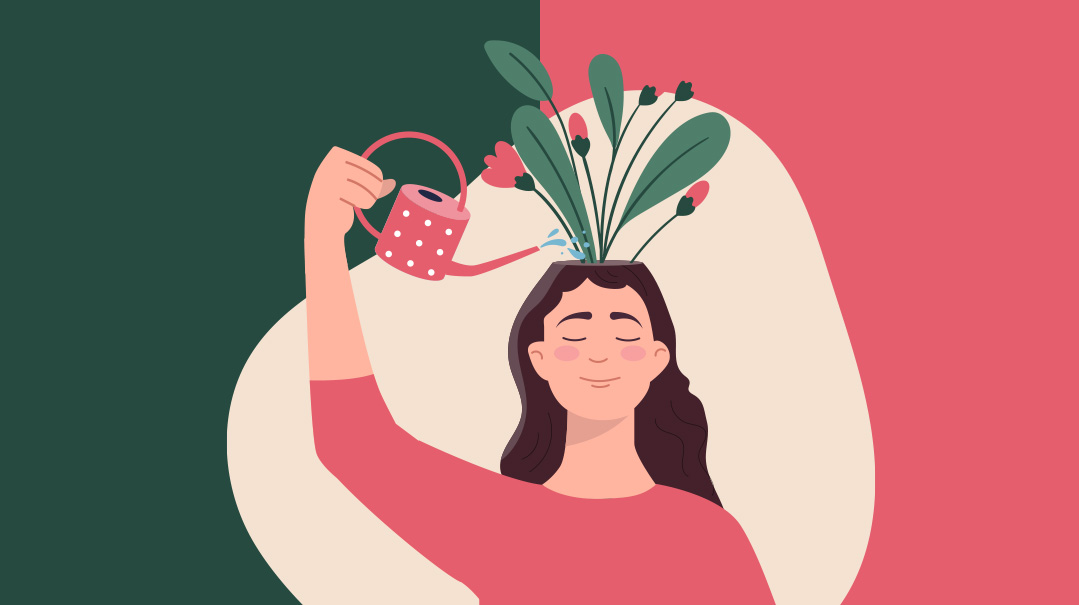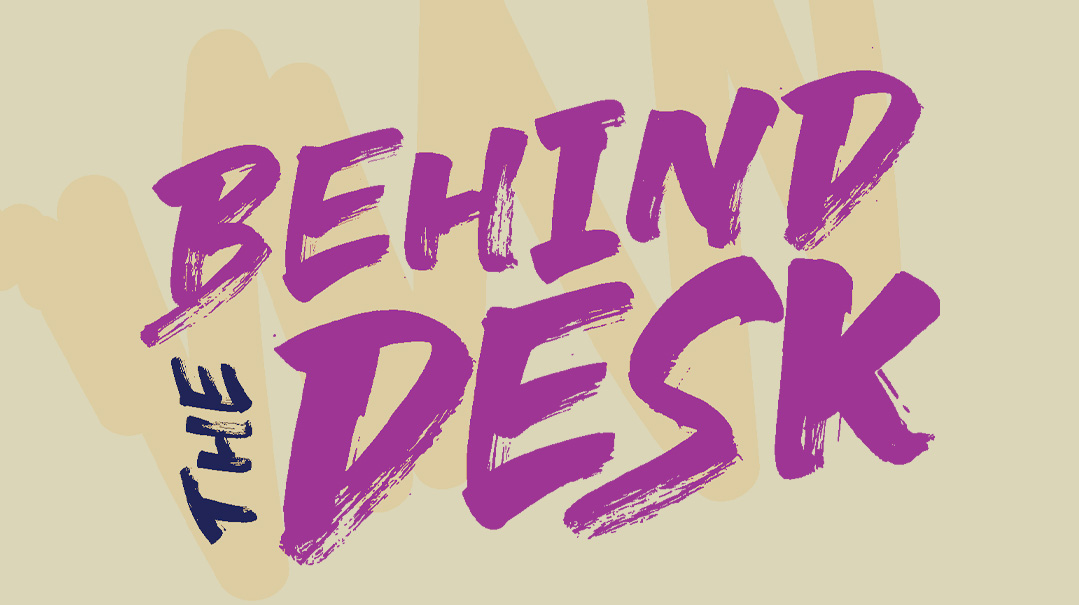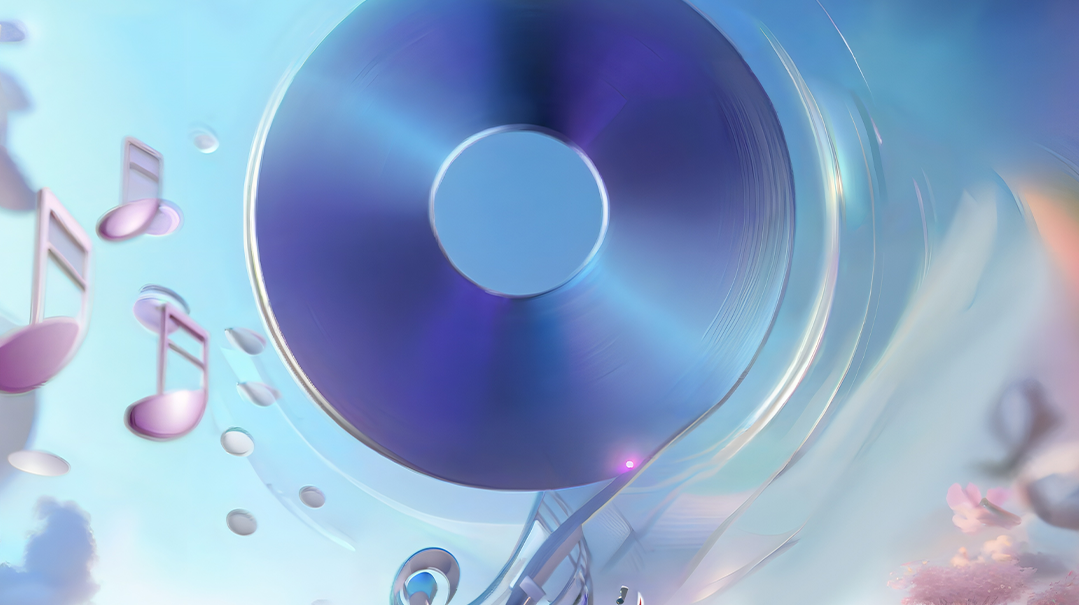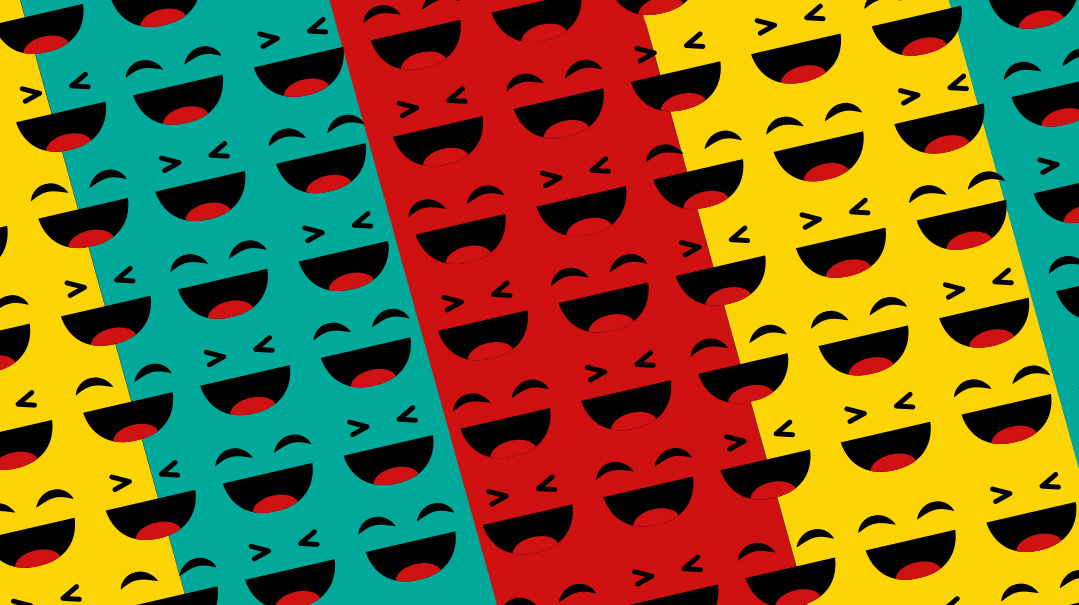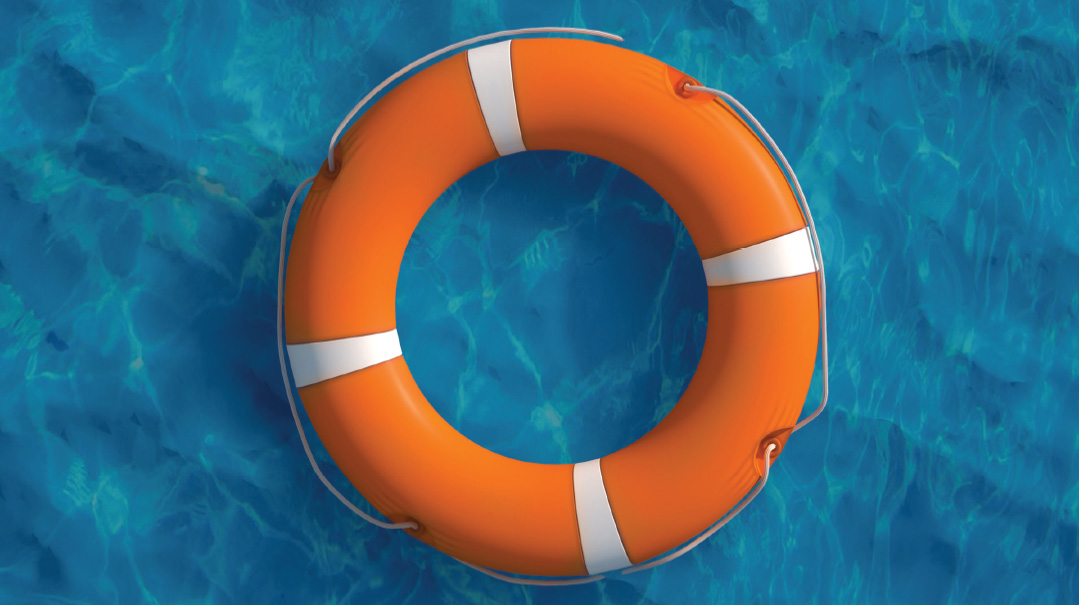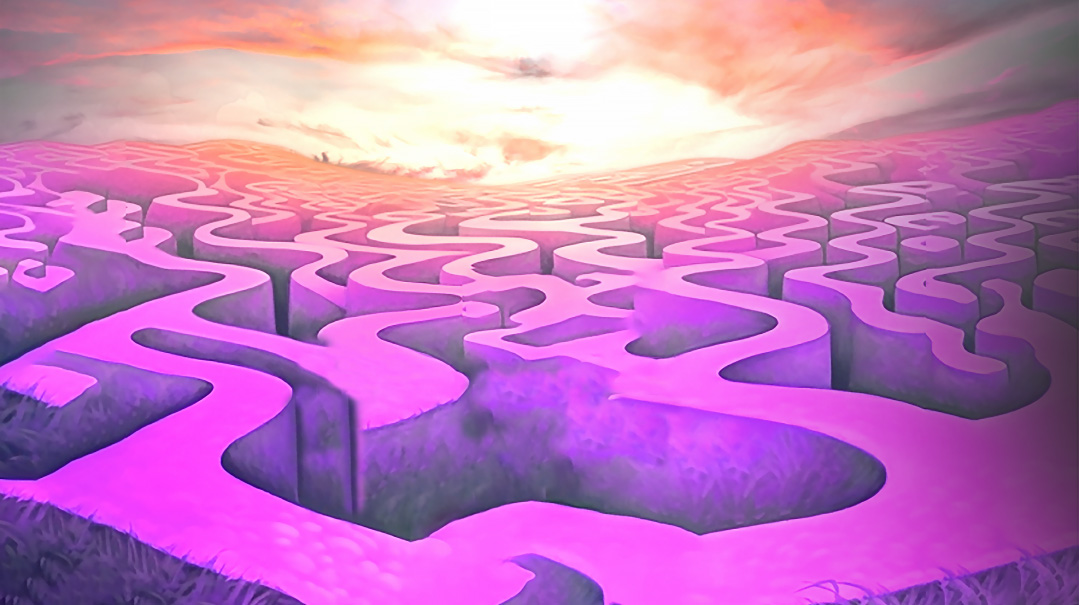Choosing a Beautiful Life
| December 20, 2022Rivka Shotkin shares the choices she’s made to build a beautiful life — not in spite of her challenges, but because of them
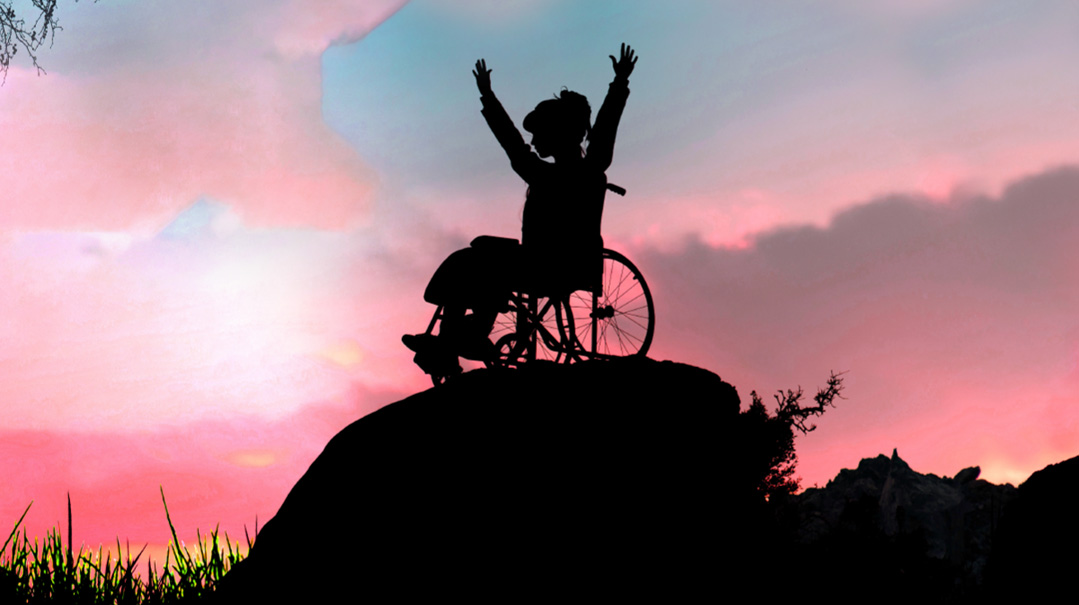
It is specifically during the darkest time of the year that we light the Chanukah licht. They dispel the darkness. These lights have the power to lift us out of our despair and to remind us Who’s running the show. Maybe we get a little distracted with our daily challenges, and we forget about all His kindnesses. But Chanukah is here to remind us: A great miracle happened there. And it can happen again.
Meet a teen who experienced her own miracle, never gave in to despair or darkness, and opened her mind and heart to allow Hashem to guide her and help her through a tremendously trying time.
After a devastating skiing accident, 16-year-old Rivka Shotkin was left paralyzed from the chest down. Rivka shares the choices she’s made to build a beautiful life — not in spite of her challenges, but because of them.
The Accident
January 31, 2021
That was the day that my life changed for ever.
During midwinter break, my family went on a skiing trip to Tannersville, NY. It began with a beautiful Shabbos followed by a full day of skiing on Sunday. It was my fourth time skiing. I had done this before, and I was a decent skier. I wasn’t afraid; I assumed that the worst thing that could happen to someone while skiing was a fall and perhaps a few scratches or a broken bone.
I had a nice time with my family that day. At the end of the day, everyone else was ready to go home, but I wanted to go down the mountain one more time. My family waited for me. I skied down most of the mountain until I reached a detour. I was supposed to make a 90 degree turn onto a different trail, but I didn’t make the turn, and instead I went straight into a tree. I was going about 50-60 miles per hour when I hit the tree. That’s really fast.
Memories of the impact are fuzzy, but I do remember the moments afterward. I lay halfway in the tree as I tried yelling for help. My lungs were punctured, so it was hard for me to make noise. And it was impossible for me to move.
Someone must have seen me stuck in the tree and called for help. It felt like forever until the EMTs came rushing over to rescue me. I was hanging over a tree branch when they arrived. They rolled me out of the tree and brought me down to the first aid station. My body was in shock, so I didn’t even feel much pain. I didn’t realize how badly I was hurt.
I could hear what the EMTs were saying, but I didn’t understand everything. There was one phrase that I did understand, and I kept hearing it again and again: “Time is of the essence.”
Those words were the last thing I heard until I woke up nine days later in the ICU.
I had been airlifted to Albany Medical Center, a hospital that was fairly close by with a good trauma center.
Due to Covid restrictions, I was taken by myself into the helicopter. But being alone didn’t bother me because I wasn’t conscious by then. I was intubated because my lungs were filling up with blood, and my oxygen levels were dropping. As soon as we arrived at the hospital, I was rushed inside so the medical team could assess the damage.
Hospital Stay
I don’t remember any part of my initial stay in the ICU, but once I woke up, my family told me what happened.
I had broken 11 bones, punctured both lungs, and completely severed my spinal cord. The spine is what sends messages from the brain to the rest of the body. So if you break that connection, the messages don’t go through. The point where the spinal cord is severed determines how much paralysis there will be. I was paralyzed from the chest down.
Thank G-d I was wearing a helmet at the time of the accident. My helmet had cracked instead of my skull. That’s what saved me from a traumatic brain injury. Actually, my helmet very likely saved my life.
In the ICU they ran a bunch of tests and took me into emergency surgery where they put in two rods and eight screws to stabilize my spine. A lot happened during the following days. One day my heart even stopped. Most of the time was spent trying to wean me off the oxygen so they could take me off the respirator and let me start breathing on my own.
Meanwhile, my family was home; my siblings weren’t allowed to visit me (again, Covid regulations). I was allowed to have one parent with me in the ICU. My mom was there for most of the nine days. My dad stayed with me during the one break my mom took when she went home for 14 hours.
Nine days later, the doctors felt that I was ready to breathe on my own, and they removed the tubes. Suddenly, I woke up. I was on a lot of medication, and I was very disoriented. I was hallucinating, seeing things that weren’t there and talking to people who weren’t there. I was very confused.
I knew I had been in a skiing accident but I didn’t know exactly what had happened. I was in a lot of pain. Just making it through each hour, each day was difficult. And I didn’t yet know that I was paralyzed.
I spent another five days in the ICU, and that was very hard. I wasn’t allowed to eat food. I couldn’t breathe well. Finally, at long last, they moved me out of the ICU into a regular hospital room.
Sitting in the regular hospital room, I looked at my mom and said, “We did it! We made it!”
But I didn’t know that it was just the beginning of my journey.
As I started to become more alert and with-it, I began to pick up on things that weren’t being told to me outright. It slowly started to dawn on me that walking again wasn’t going to happen so easily.
But I was determined to walk. I was going to do it! Of course I was going to walk again!
People would look at me sadly and try to give me a reality check. “Well, if your spinal cord is broken, no matter how hard you try the messages just won’t go through.”
In the beginning I kind of knew that I wasn’t going to walk again, but I wasn’t ready to let go of the life I knew I could no longer live. So I didn’t process it.
At one point, the hospital decided it was time to update my siblings (I’m one of 11). They were all home and very worried about me. They set up a Zoom meeting with my family and a trauma counselor, and I was able to join as well. At first it was weird to see my family sitting together on the couch in my house; I hadn’t seen them in two weeks.
As I listened to the trauma counselor talking delicately to my family, it slowly hit me — this isn’t a temporary thing. In my head, I had thought I would get the feelings in my lower body back, but as he continued talking reality hit: This was a permanent situation.
For a day after that, I didn’t want to think about it because I just couldn’t let go of my old life. With time, though, I was finally able to ask the important question. I turned to my father and asked, “What if I never walk again? What am I going to do?”
As a response to my question, my father connected me with someone named Eli Portel. Eli’s an amazing person who is also paraplegic due to an accident that took place when he was a young boy. Eli lives in the Five Towns and actually married a girl that lives up my block. After my accident, Eli went to visit my family, and I jumped in on Zoom.
I will never forget what Eli said to me: “It’s okay to be scared, but I want you to know that whatever happens to you, you’re going to be a better person because of it.”
I looked at him and said to myself, “He’s married with two kids, and he’s living a very full life. I too can still live a meaningful life. I can still accomplish so much in my life. I can’t change what happened to me but I may as well make something beautiful out of it.”
Once the gravity of my situation hit, I had two choices.
Choice A was to play the “poor me” card, feel terrible for myself, and wallow in misery.
Choice B was to accept the situation for what it was and build the best life possible.
Both choices were not easy. Both of them would sap me of energy. So really I had to decide: What did I want to spend my energy on? I chose choice B. I would build a beautiful life for myself.
Months in Rehab
The first hospital stay lasted for two and a half weeks. I went straight from the hospital to the rehab center, Children’s Specialized Hospital. I was really weak at the time. Aside from being paralyzed, I had nerve damage in my arms; I literally couldn’t do anything.
When I arrived at the rehab center, I looked around at all the other children there with all kinds of disabilities. Many of them were in wheelchairs. I couldn’t believe that I was suddenly one of them! It made me feel nervous and scared. This was a whole new world.
I couldn’t really connect with the other patients. Many of them were very sad and miserable people. They gave off a lot of very negative energy and they hated what they were going through. I actually felt bad for them because they were so miserable. I had a totally different energy coursing through me.
At that point I was allowed a very limited amount of visitors, so I was able to have one parent with me every single day for the three months I spent in rehab. I wasn’t allowed to have any other visitors, which meant that my siblings couldn’t visit me for three months. But we found a creative way to get around it!
Children’s Specialized had a “Healing Garden” outside (which, by the way, wasn’t very healing). It was four feet above ground level, fenced in with plexiglass. My siblings came to the rehab center, and stood outside the Healing Garden. They brought along tall step stools. As they stood on the step stools, I saw their little heads peeking out, and we were able to wave to each other and shout through the plexiglass — with me on the inside, and them on the outside. Those visits meant so much to me. They really kept me going.
Life in rehab was pretty rigorous. They woke me up early in the morning to start therapy. It was really tiring. I’d finish one therapy session, they’d give me a bit of time to recuperate, and then it was on to the next therapy session. This went on day after day. It was a lot of work. I had to learn everything again — from the smallest and silliest little things to the bigger things. I had to learn how to get dressed, sit up, and brush my teeth. I had to relearn things I had been doing my entire life! It was very hard.
I had one main PT and one main OT. I became really close with them — we shared a special bond. They enjoyed working with me, because I was a breath of fresh air compared to some of the other patients. I appreciated how they tried to keep the sessions as light and fun as possible — though it was still a lot of work!
When I wasn’t in therapy, I spent most of my time in my room. I did have some downtime, but I usually spent the time napping because rehab was so exhausting. Every day, every hour, every therapy session took so much effort and so much energy. They did give us one day off each week, and that day was generally Sunday. But I was able to move my Shabbos therapy sessions to Sunday, so I could have Shabbos off. Shabbos in rehab was not fun. The whole place is filled with electric doors and electric gadgets, so we had to be super careful.
Each Shabbos was spent with one of my parents. I became really close with my parents during this time. My cousins prepared huge boxes with tons of great Shabbos food each week; it was really nice of them. They put their full hearts into it, writing me notes and special cards. It was so reassuring to see how much people cared about me. I felt like so many people were cheering me on! When Shabbos came, we set up a little table in my room with a white tablecloth to make it feel a little more like Shabbos.
After three months of rigorous therapy in rehab, insurance was no longer willing to pay the bills. And I was getting kind of sick of being there.
At the end of my three month stay, there wasn’t a single person there from when I had first arrived. For three months I watched people come in on chairs, learn how to walk, and then leave on their own two feet. At times, watching everyone else get better was challenging. I was happy for them, but I did get a little jealous at times. But it made me want to push myself even harder to get out of there.
So at that three month point I decided that the time had come to go home. Finally I had the opportunity to leave. I said, “Let’s do it!”
Coming Home
Leaving rehab felt kind of like leaving prison!
At the front of the rehab building, near the entrance, there was a huge fish tank. The rule was that patients were not allowed to go past that fish tank.
But I was finally leaving! What an amazing feeling it was to finally go past that fish tank, out the door, and into the fresh air! My family’s car was parked outside, and I was just so excited. We were going home!
That ride home was magical. I couldn’t take my eyes off the world around me! I had forgotten just how beautiful the world was! Seeing people, life, trees, cars, buildings, clouds — it was just wow! So totally amazing!
The day I came home, my family threw a huge party. It was beautiful! The house was decorated with balloons and streamers. In the center of it all was a huge wedding cake with three multi-colored tiers.
Why a wedding cake? Because that’s what I asked for! When I first woke up in the ICU, I was hallucinating, and for some reason I saw tons of cupcakes (I guess that’s what I was craving). So when everyone asked me what they could send over to the hospital, I told everyone that I wanted cupcakes. The amount of cupcakes I received was amazing, but I couldn’t eat them because I wasn’t allowed to eat.
When I finally could eat, I didn’t have an appetite to eat any cupcakes, so by the time I went home, I was going all out. Forget the cupcakes. I wanted a wedding cake!
It was great to finally be in my own home surrounded by my supportive family. It was just the best feeling, and I felt like I was on top of the world.
But being home was challenging too. My house was not yet handicap-accessible. I lived at home for some time, and then I moved into my sister’s house, which was a few blocks away. Her house was more accessible, and she was able to take care of me. I lived there for a few months, while my own house was renovated. My parents put in an elevator, and they made me my own accessible bathroom. When I moved back home, the elevator was not yet ready, which was a slight issue because my bedroom was on the second floor. So for a few months my father and brother would give me piggy back rides up and down the stairs. It was actually lots of fun! On Shabbos I still don’t use the elevator, so my father and brother carry me up and down. Instead of getting frustrated, I enjoy the ride!
Back to Regular Life
I was in the middle of ninth grade when the accident happened. I missed the rest of the year, and that summer, I spent most of my time in outpatient rehab learning how to do even more things. I was also dealing with a lot of infections, sickness, and in general, getting the hang of being paralyzed.
I never did return to my high school. We tried, but it wasn’t accessible for my needs, so I’ve continued my high school studies remotely.
I make sure to spend plenty of time socializing with my old and new friends. Many of my new friends were made through Camp Simcha, which was a totally awesome experience. My friends and I enjoy going out. I like to keep things creative, and we do all sorts of things. My life is great, busy, fun, beautiful, messy, and chaotic.
I have lots of dreams for the future: I would like to work in the medical field one day. I always wanted to work in the medical field, but after all I’ve been through, I’d love to be in the hospital not as a patient. I’d love to build a family and buy a house, all the regular dreams and normal things that normal people assume they’ll have one day. But for me there are more questions, so for me they are dreams. With Hashem’s help, I will get there.
This may sound crazy, but I am happier now than I was before the accident.
Before the accident I was happy, but only externally. I had a hard time getting into high school, and that had really taken a toll on me. I was always dancing and on the go, but inside I wasn’t happy. Even if I had a good day, I’d go into my room at night and fall apart. I didn’t feel content with my life.
After the accident, my perspective on life shifted. I realize that you only get one go at life. So many of us waste it because it isn’t perfect. And I think that’s the silliest thing you can do! You only get one life, only one today. Why not enjoy it and make it beautiful?
After the accident I realized I had a new opportunity.
Of course, I had bad days. I had frustrating days. Just like everyone else. Getting better has not been a smooth path. It’s been one step forward, two steps back. I still have tough days; that’s part of life. But they always pass. I experience hugs from Hashem, so many amazing little things that go right (and some not-so-little things). Oh, and having a sense of humor definitely helps too!
Where do I get my strength from? It comes from my family. They are really here for me, and they’ve given me so much strength and support.
To gain back my independence, I had to learn how to do things on my own. I have many siblings so there was always someone around to help me. But my family encouraged me to try on my own and specifically did not do everything for me. They wanted me to become independent again. Seeing how much my family cared about me, encouraged me and pushed me harder and further.
But the driving force that helped me push my limits was a strong inner desire to prove to myself what I was capable of. My will to get better was so strong. What am I capable of? How far can I go?
Today I can get dressed by myself, I can get out of bed, and I can take a shower. I worked really hard, and I’ve learned how to maneuver myself and build strong muscles. It’s an amazing feeling to have come so far! When I returned to the rehab center for a visit one year after my discharge, the staff was so excited to see how far I had come!
There is currently no cure to repair my spinal cord. If they come out with a cure in my lifetime that will be the most amazing thing, but if they don’t, it will also be amazing. Because life is beautiful, whether I’m spending it on my own two feet or on four wheels.
Rivka’s Advice for a Beautiful Life
On coping with challenges and dealing with the things that we didn’t ask for and don’t want:
Getting upset and worked up about it won’t make things easier. The challenge will still be there. You don’t have control over everything. The only thing that you do have control over is your reactions and what you choose to do with the curveballs in life.
Try to find a way to deal with your reality that doesn’t include destroying yourself in the process!
On appreciating the gifts in life:
A lot of us don’t even realize how many gifts we actually have. That’s because we are almost blinded by all the things that we don’t have. Train yourself to recognize the things you do have because there are a lot of people who don’t even have those things!
If your future self was in a room with your current self today, would she be proud of how you are living?
On choosing our reactions to life’s curveballs:
Initially it’s hard to make the right choices. Naturally, we get all worked up and upset. But every time something goes wrong, push yourself a little bit and work on seeing the good. If you do this long enough, eventually that’s just what your mind will automatically do.
You’ll get better and better at it until it becomes second nature, just like breathing. So even when things go wrong, you’ll automatically say to yourself, at least I have this and that going for me….
On self-doubt:
If you have a challenge, you have the tools from Hashem to conquer that challenge. Find the tools and figure out how to use them.
On accepting physical and emotional help from others:
You can get twice as far and become twice as great with the help of others! Remember that you can’t carry everything on your own.
On staying positive and upbeat:
Life is a lot more enjoyable when you are happy and don’t turn every mishap and bump in the road into a huge disaster.
On acceptance:
The trick is to view your challenges as gifts and opportunities for growth and greatness. They are amazing opportunities for you to learn and grow.
On making the most of each day:
Don’t worry about yesterday or tomorrow. Live today to the fullest. Each day is a gift.
On supporting a friend who is dealing with an upheaval in her life:
Make it known and obvious that you are there for her. Don’t only be there for her when she reaches out to you. Be there for her all the time, show that you care.
This means checking up on your friend with short messages and calls. It can really change someone’s day for the better, and it doesn’t take that much time or energy!
On how to treat someone with a handicap:
There’s really not much to it — just treat her like everyone else.
(Originally featured in Teen Pages, Issue 941)
Oops! We could not locate your form.

